User Research
Libraries are impacted by the ways in which individuals engage with technology; how they seek, access, contribute, and use information; and how and why they demonstrate these behaviors and do what they do. We're collaborating with librarians to shape their services around a set of expectations that have been influenced by consumer technologies and modern research and learning environments. By providing the library community with behavioral evidence about individuals’ perceptions, habits, and requirements, we can ensure that the design of future library services is all about the user. Our efforts are amplified by strategic partnerships and focus in these two areas:
Publications
Narrow by
-
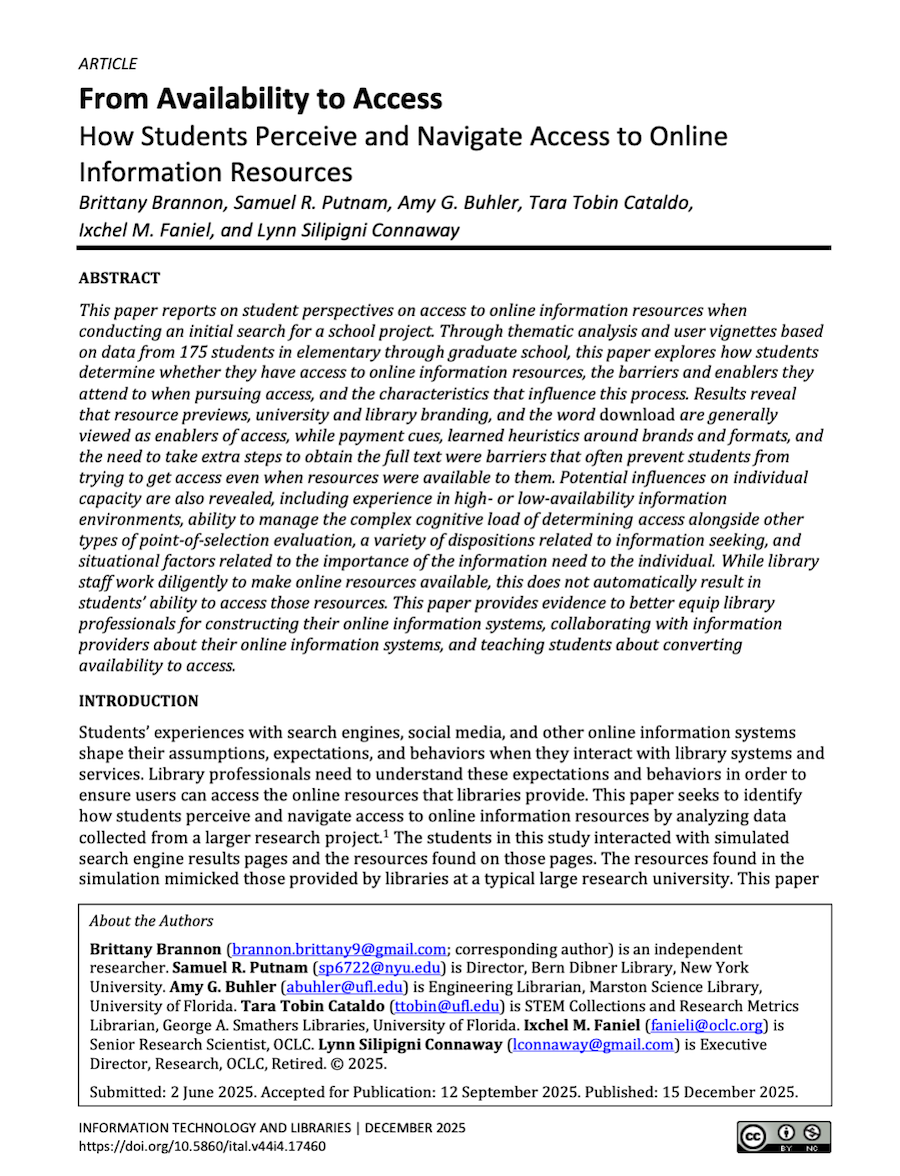
From Availability to Access: How Students Perceive and Navigate Access to Online Information Resources
15 December 2025
Brittany Brannon, Samuel R. Putnam, Amy G. Buhler, Tara Tobin Cataldo, Ixchel M. Faniel, Lynn Silipigni Connaway
Provides insight into how library leaders and staff expect changing library experiences to create more meaningful engagement and positive impacts in the next five to ten years.
-
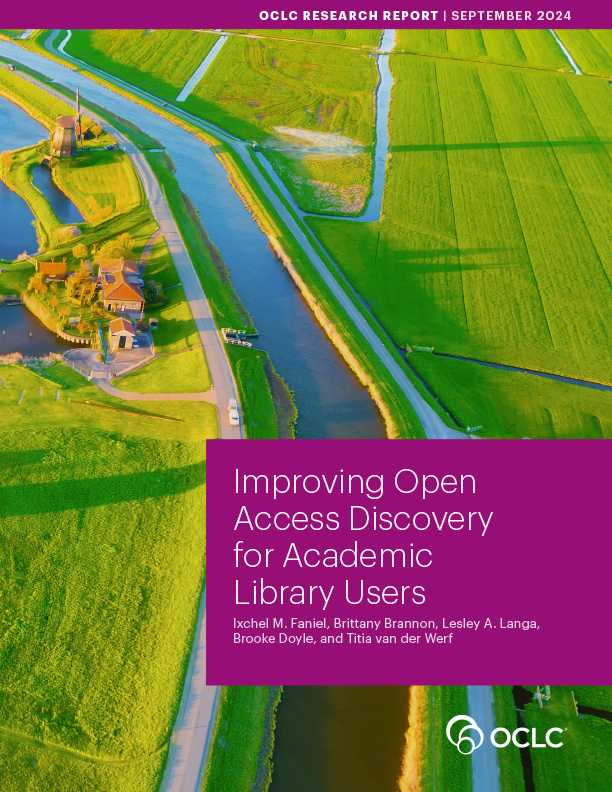
Improving Open Access Discovery for Academic Library Users
25 September 2024
Ixchel M. Faniel, Brittany Brannon, Lesley A. Langa, Brooke Doyle, Titia van der Werf
Examines efforts made by academic library staff at seven institutions in the Netherlands to make scholarly, peer-reviewed open access publications more discoverable by users.
-
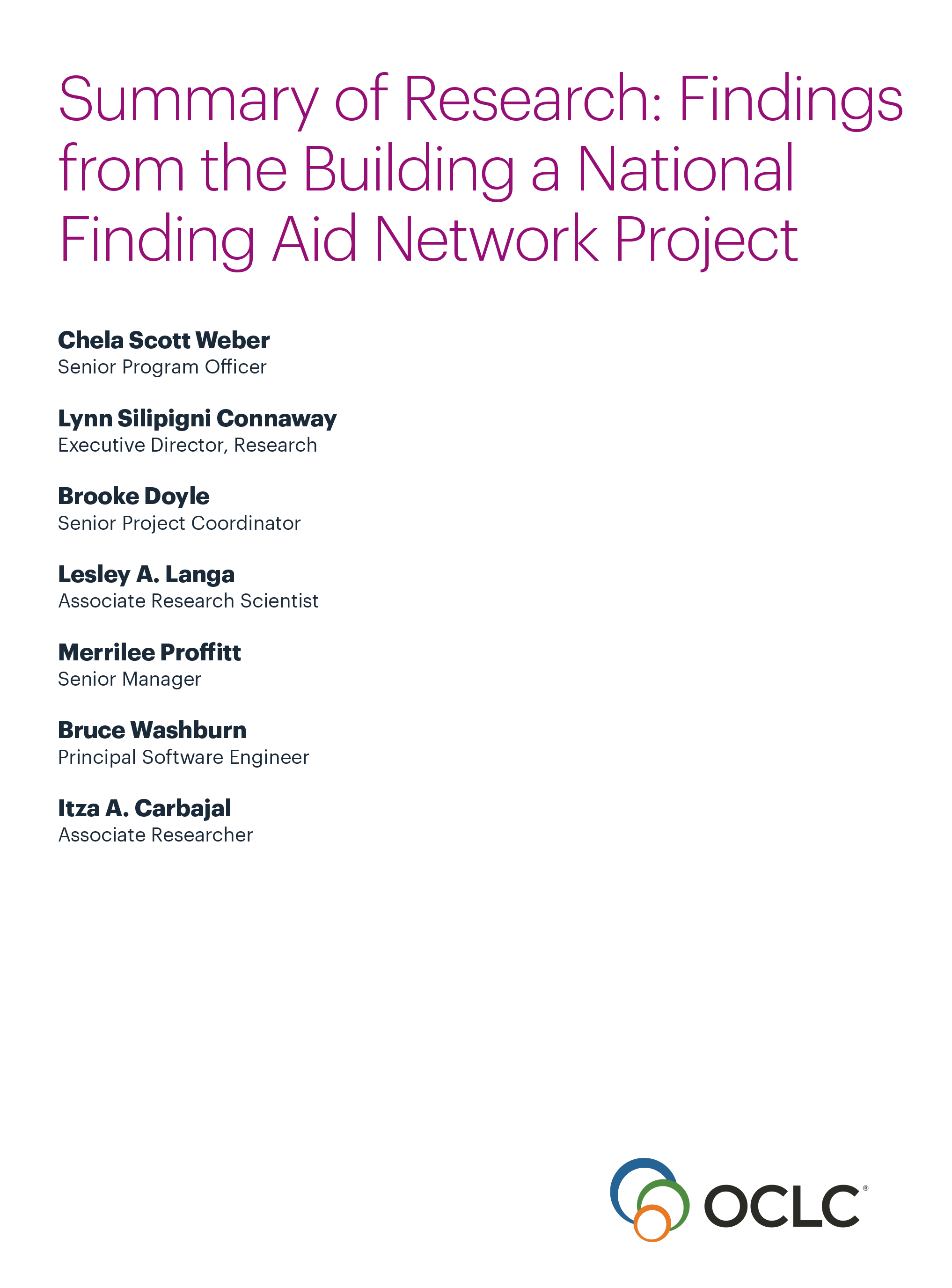
Summary of Research: Findings from the Building a National Archival Finding Aid Network Project
31 May 2023
Chela Scott Weber, Lynn Silipigni Connaway, Brooke Doyle, Lesley A. Langa, Merrilee Proffitt, Bruce Washburn, Itza A. Carbajal
Synthesizes OCLC’s findings for the Building a National Finding Aid Network project. The research investigated end user and contributor needs for finding aid aggregations and evaluated EAD encoded finding aid data quality and consistency from existing regional archival aggregators.
-
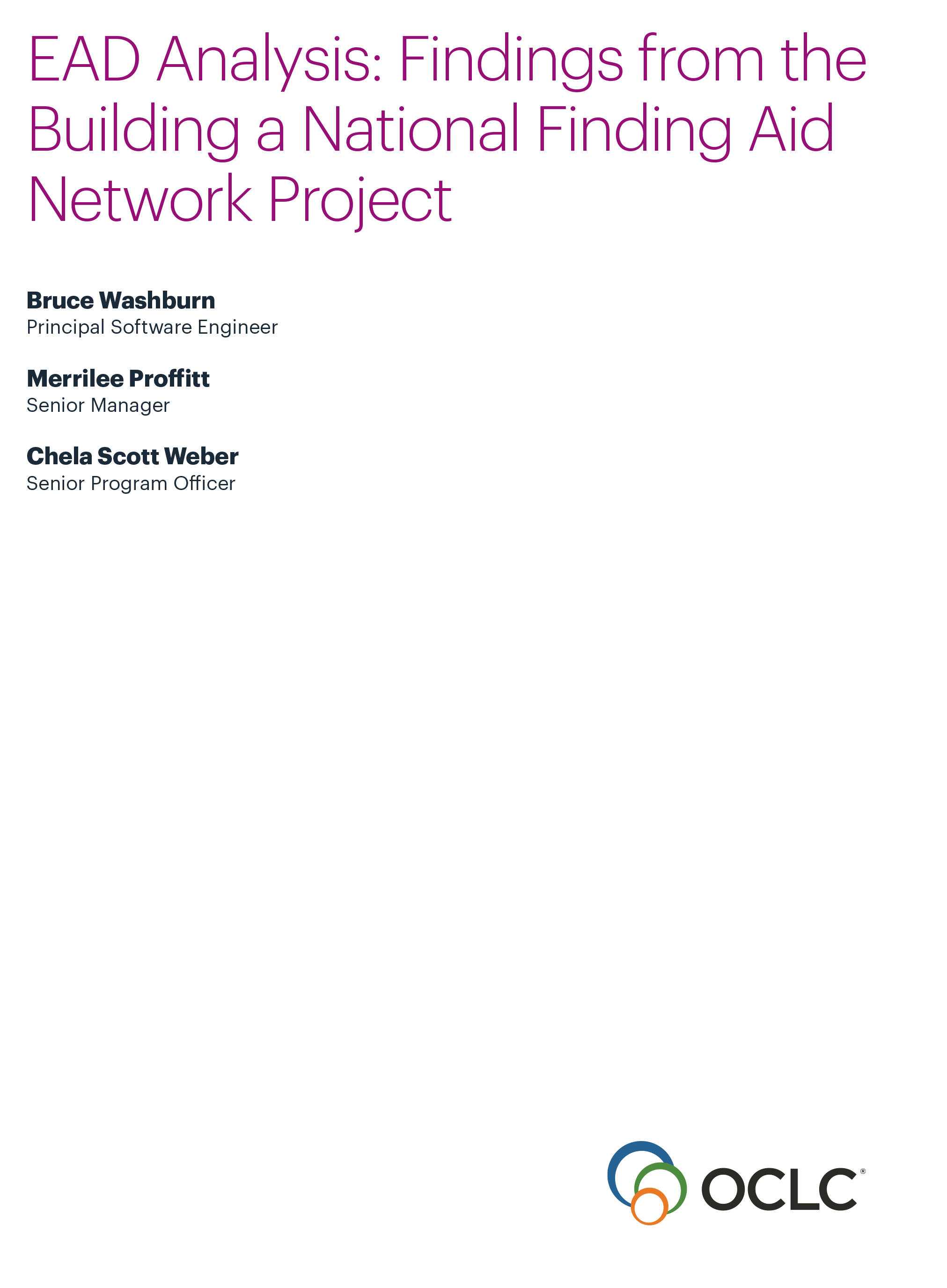
EAD Analysis: Findings from the Building a National Archival Finding Aid Network Project
30 May 2023
Bruce Washburn, Merrilee Proffitt, Chela Scott Weber
Analyzes a corpus of EAD encoded collection descriptions provided by regional finding aid aggregators in the US to assess existing EAD data as raw material for building a national finding aid aggregation.
-
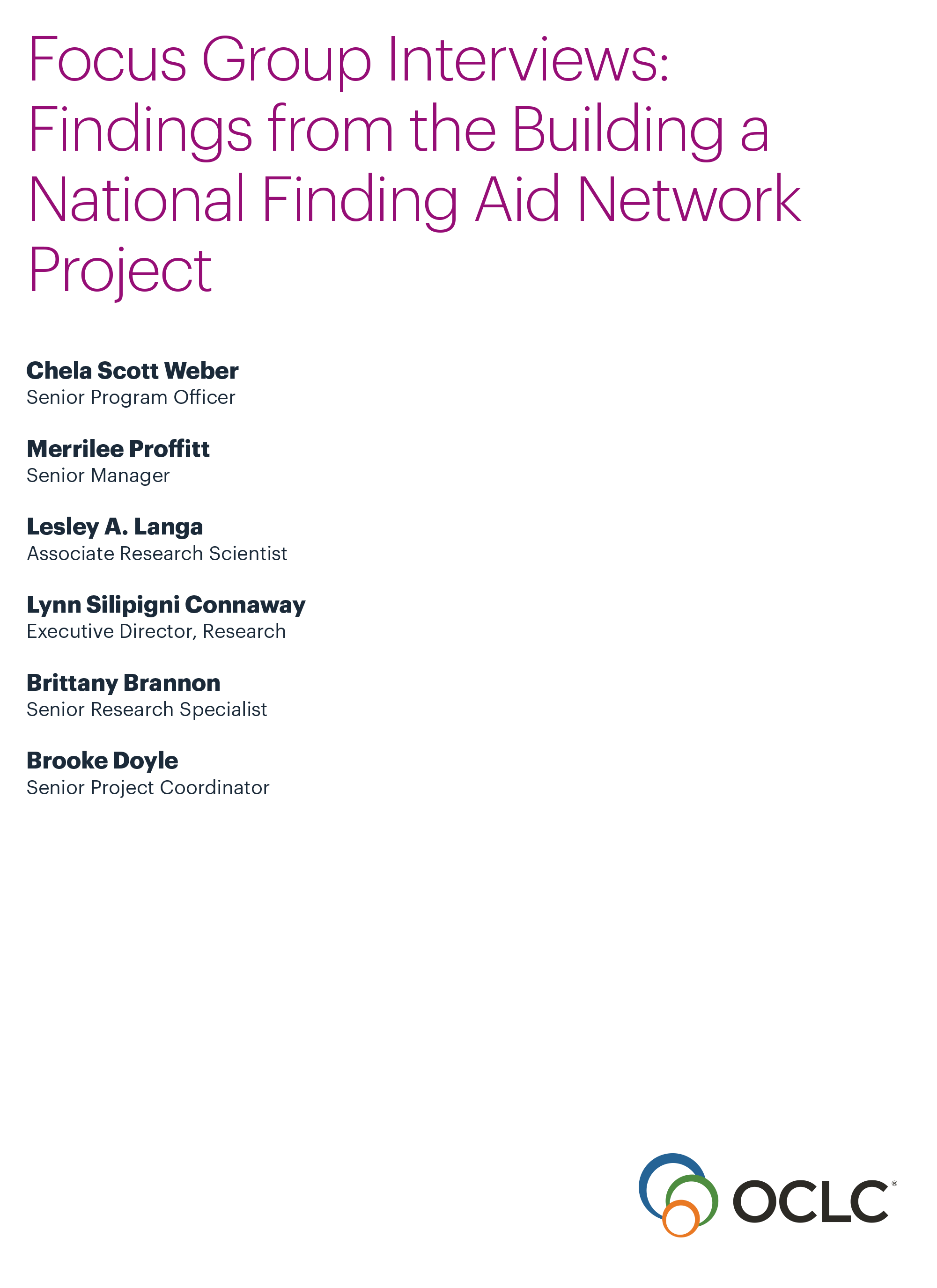
Focus Group Interviews: Findings from the Building a National Archival Finding Aid Network Project
30 May 2023
Chela Scott Weber, Merrilee Proffitt, Lesley A. Langa, Lynn Silipigni Connaway, Brittany Brannon, Brooke Doyle
Investigates the needs of archivists and others who might contribute to a national archival aggregator through focus group interviews with archivists and archives administrators from across the United States.
-
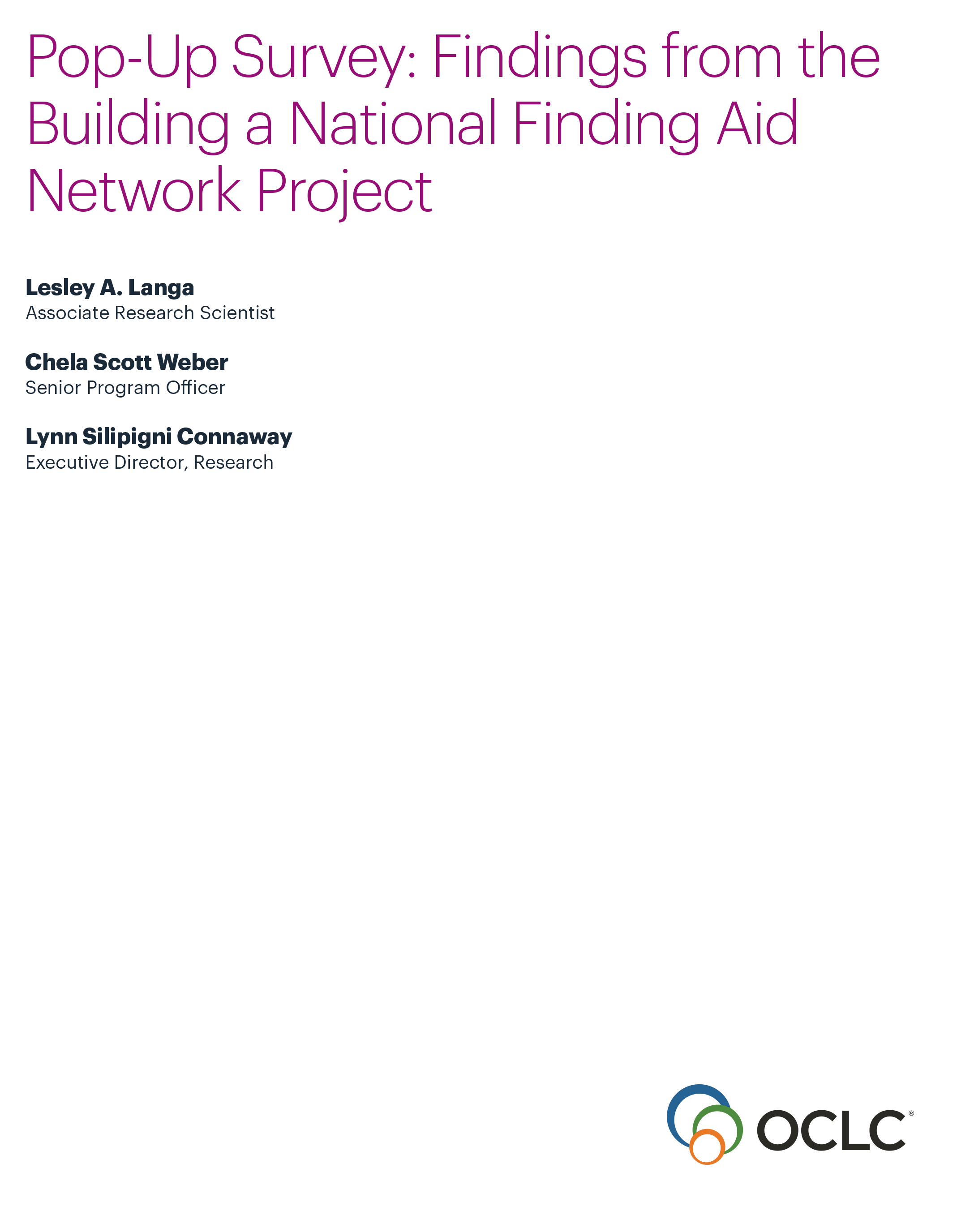
Pop-up Survey: Findings from the Building a National Archival Finding Aid Network Project
30 May 2023
Lesley A. Langa, Chela Scott Weber, Lynn Silipigni Connaway
Summarizes OCLC’s findings from a national survey of more than 3300 end users searching for archival materials online for the Building a National Finding Aid Project.
-
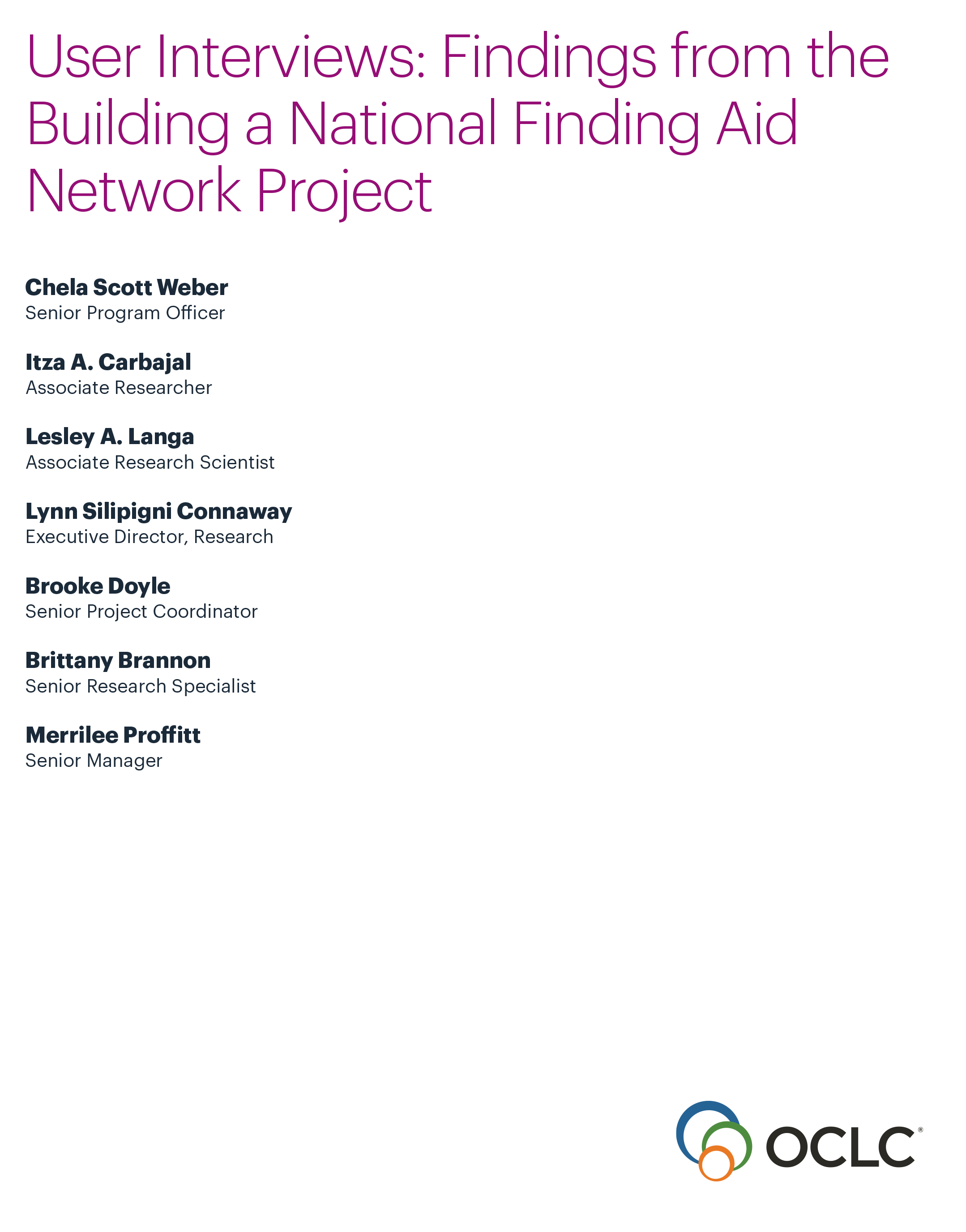
User Interviews: Findings from the Building a National Archival Finding Aid Network Project
30 May 2023
Chela Scott Weber, Itza A. Carbajal, Lesley A. Langa, Lynn Silipigni Connaway, Brooke Doyle, Brittany Brannon, Merrilee Proffitt
Details methods and summarizes findings from semi-structured individual interviews with end users of archival aggregation.
-
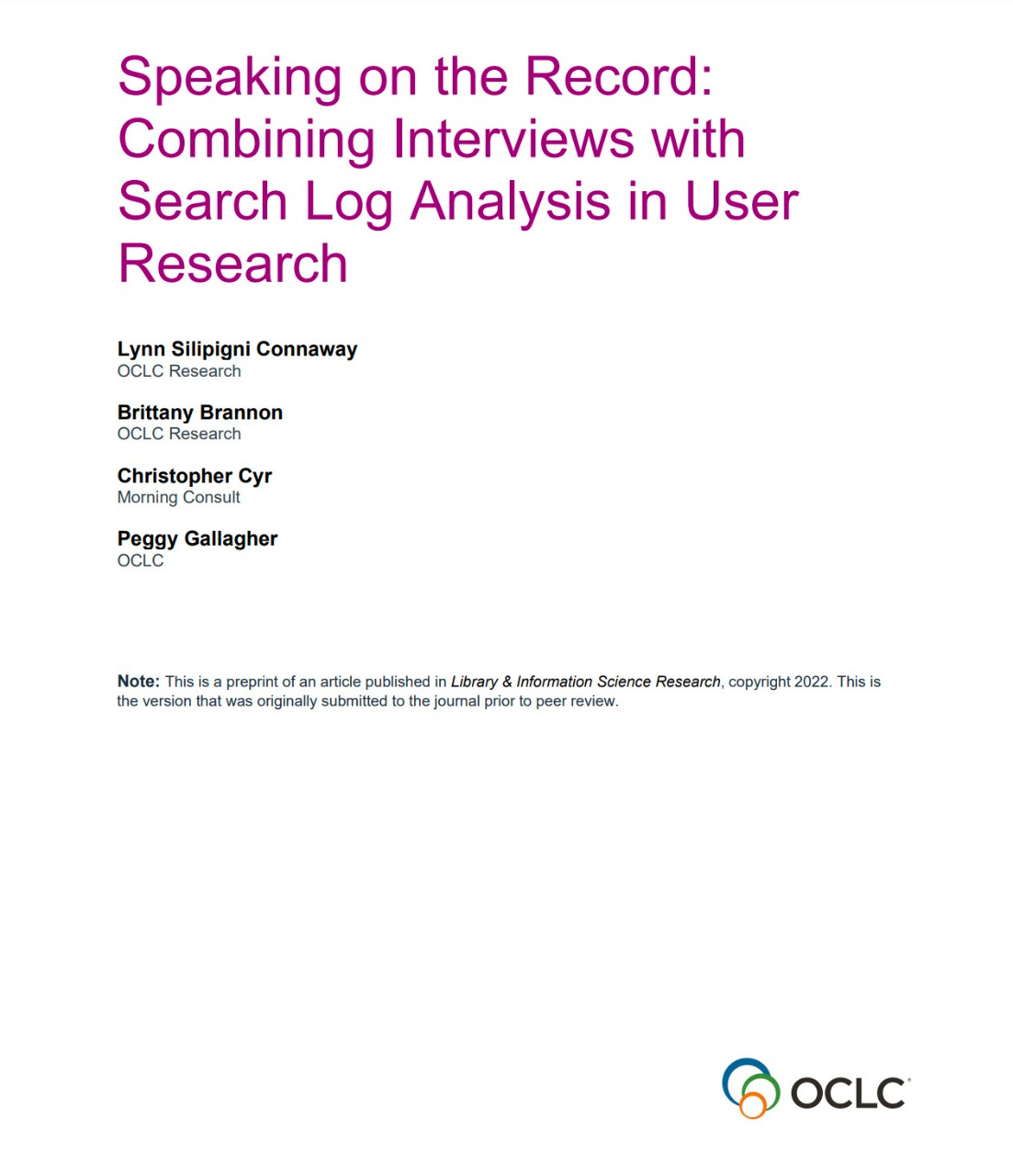
Speaking on the Record: Combining Interviews with Search Log Analysis in User Research
6 April 2022
Lynn Silipigni Connaway, Brittany Brannon, Christopher Cyr, Peggy Gallagher
This paper reports on a novel sequential mixed methods approach combining search logs and semi-structured individual interviews to study user search behavior within a library discovery system.
-
Using collective curation to pay data forward in the life cycle
11 June 2021
Ixchel M. Faniel
Drawing from a study of archaeological excavation teams, four collective curation opportunities are proposed to identify and resolve differences in data and documentation practices that arise in team-based research. To create more integrated, well-documented data, the opportunities attend to integrating people rather than technology. The actions people take as data move through the life cycle become the focal point of change.
-
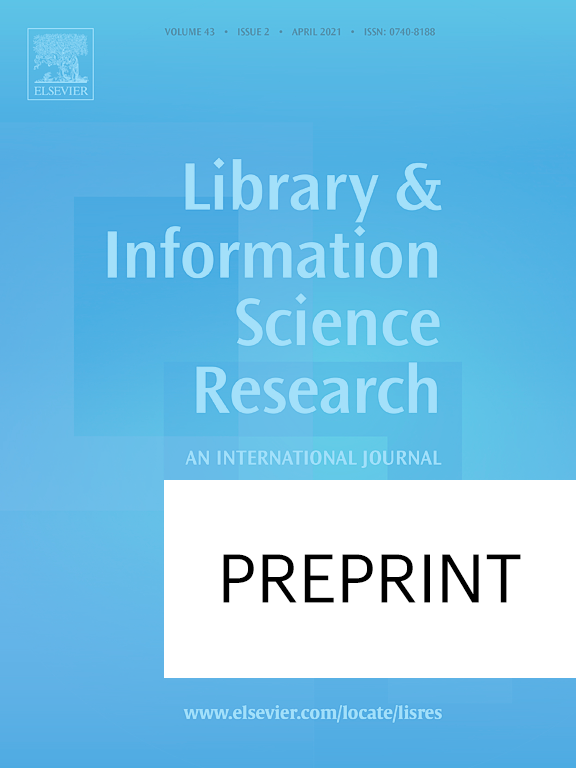
I still go ask someone I enjoy talking to: The use of digital and human sources by educational stage and context
6 January 2021
Chris Cyr, Brittany Brannon, Lynn Silipigni Connaway
How does educational stage affect the way people find information? In previous research using the Digital Visitors & Residents (V&R) framework for semi-structured interviews, context was a factor in how individuals behaved. This study of 145 online, open-ended surveys examines the impact that one's V&R educational stage has on the likelihood of attending to digital and human sources across four contexts.
